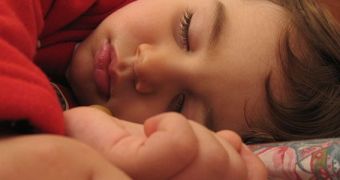A new study conducted by experts at the Ben-Gurion University on unsuspecting lab rats indicates that depriving the rodents of sleep following exposure to a stressful event can prevent the development of post-traumatic stress syndrome (PTSD).
If it can be translated into humans, the practice would provide the US Army, for example, with a simple method for ensuring that its troops are no longer affected by the things they see. Many veterans returning home are affected by this condition, PsychCentral reports.
In the new experiments, scientists only deprived the rats of sleep for about 6 hours following the adverse event. This would not be too much of a burden for people who've engaged in combat, went through a car accident or terrorist attack, or witnessed some other disturbing event.
“Our research method for this study is, we believe, a breakthrough in biomedical research,” says researcher Hagit Cohen, PhD, the director of the Anxiety and Stress Research Unit at BGU.

 14 DAY TRIAL //
14 DAY TRIAL //